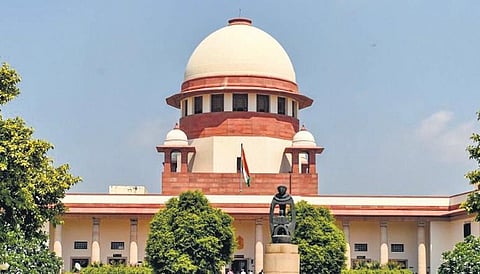

NEW DELHI: The Supreme Court on Monday agreed to examine if the Editors Guild of India’s president and its fact-finding team, booked by the Manipur police for its report allegedly promoting enmity between different groups, could approach the Delhi High Court as a one-time measure to quash the FIR.
A bench led by Chief Justice of India D Y Chandrachud said, “It is a report after all. The basic question he (Kapil Sibal) is arguing is they have only done a report that may be a matter of their subjective opinion… This is not a case of somebody on the ground having committed an offence.”
The CJI directed Solicitor General Tushar Mehta, appearing for the Manipur government, to take instructions regarding its proposal to transfer the FIR to the Delhi HC instead of Manipur and extended its interim protection of the journalists till September 15.
The guild informed the court that its team had visited the state on the Army’s invitation to undertake an objective assessment of unethical and ex-parte reporting by the vernacular media.
Sibal sought a transfer of the case to Delhi, saying the property of two lawyers who had appeared for Prof Kham Khan Suan Hausing was vandalised recently in Manipur. “We’re only concerned pursuant to this... it’s hazardous for us to go there,” he said.
The Editors Guild, in a report published on September 2, slammed the internet ban in the state as being detrimental to media reportage, criticised what it termed as one-sided reporting by some media outlets and claimed there were indications that the state leadership had "turned partisan" during the conflict.
The chief minister had said, "They are anti-state, anti-national and anti-establishment (people) who came to pour venom. Had I known it before, I would not have allowed them to enter."